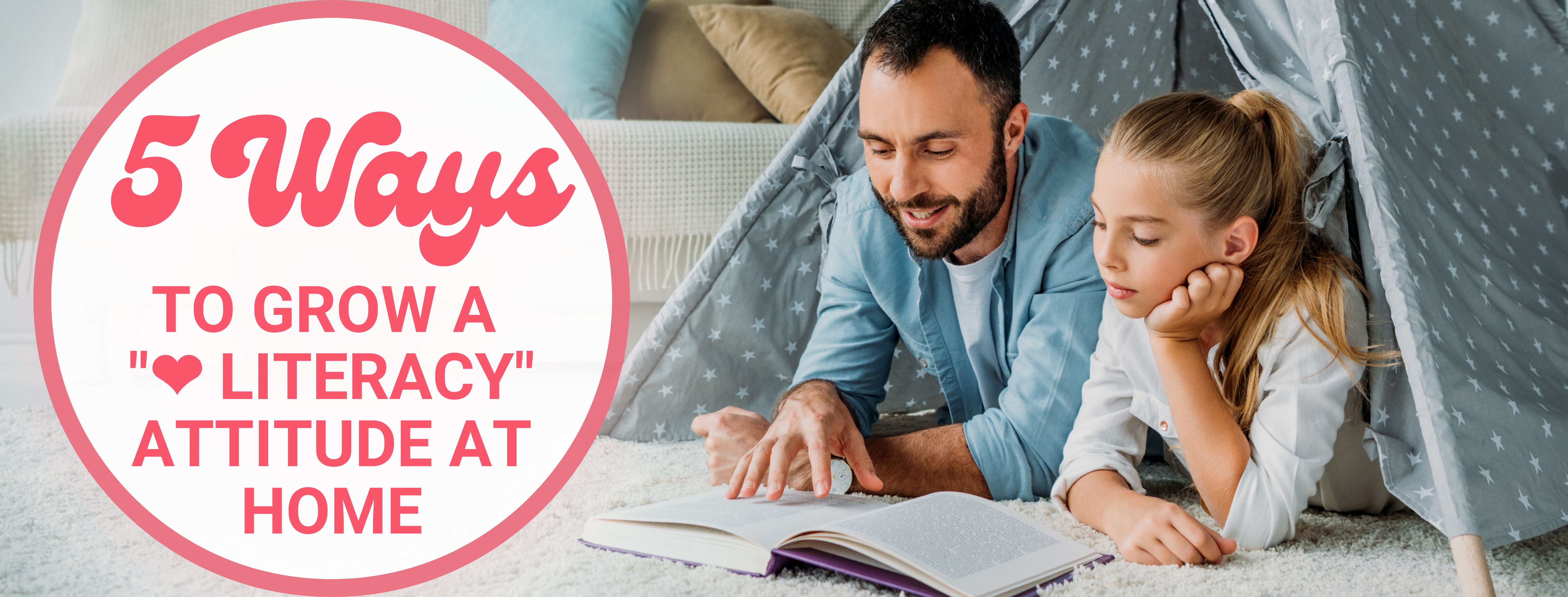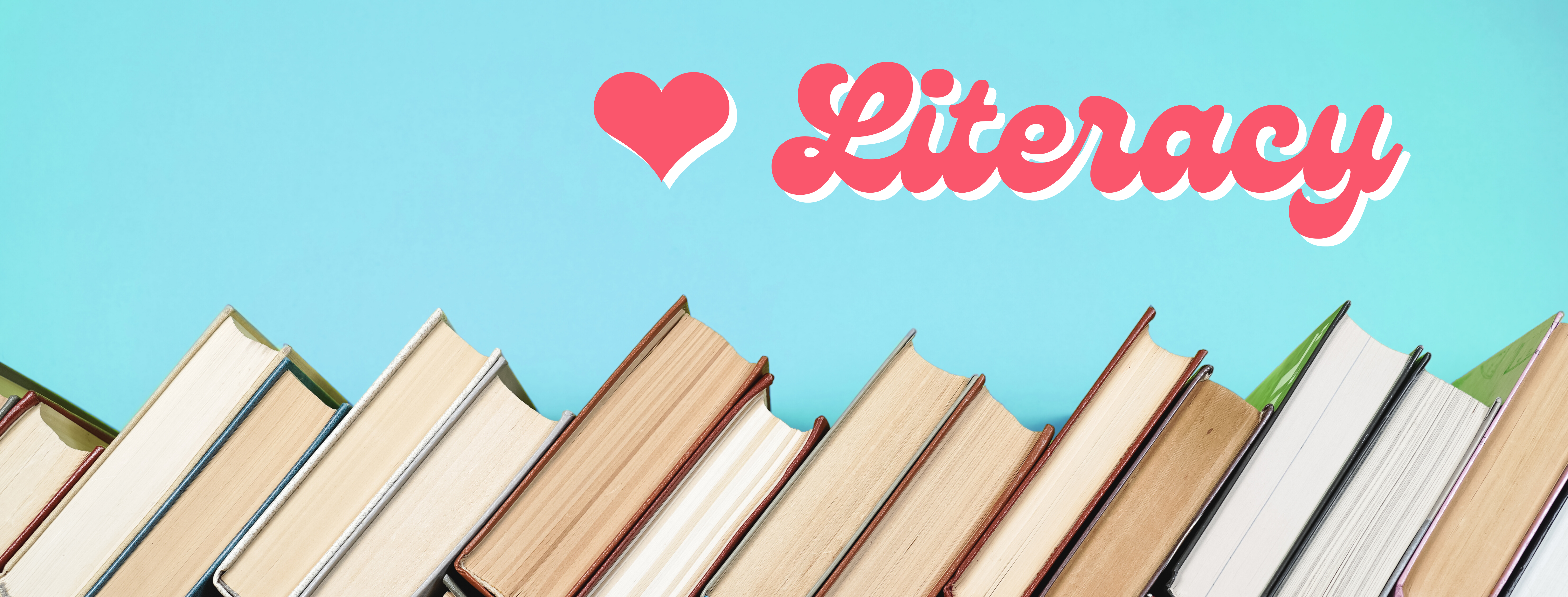
Family Literacy Day is a national initiative that helps raise awareness of the importance of reading and other literacy-related activities as a family. Learn how Markham Public Library can support YOU while you nurture healthy literacy development at home!
We've put together a list of 5 different essential elements of literacy development together with ways that you can help foster a love of literacy in your child.
1. Read Together

Make reading together part of your daily routine.
Spend time every day reading: read stories and books aloud as a family (even older kids will enjoy reading with you if you pick a great story), and set aside quiet time every evening when everyone can relax with a book or puzzle.
Play word games when you’re out running errands: try seeing how many words you can make with the letters in the license plates around you.
Play board games that involve making words or reading instructions on cards. This highlights to your child that literacy skills connect with everyday activities and that reading is fun.
Ask lots of questions about the things happening in the stories you read, the movies you watch, trips you take – everything! Talk about why things might be happening, how it would feel if it happened to you: make every story a chance to develop critical thinking skills.
Bake cookies or make dinner as a family: have your kids read the recipe aloud and help you with each step, counting and measuring ingredients as you go.
Establish a bedtime reading ritual. About 30 minutes before the time you want children to actually go to sleep, tell them they can read for half an hour or they can just go to sleep. Most children will opt for reading.
2. Sing Together

Singing is one of the simplest and most joyful things that a parent/caregiver can do for a child. What many may not realize is that while engaging in a bonding experience with your child, you are also exposing your child to skills necessary for reading success.
- Children learn language through repetition, and as songs are repeated, the rhythm of the words is internalized.
- Singing brings a natural awareness of words, as each syllable or sound in a word gets a different note.
- Nursery rhymes and finger plays present a wide vocabulary, and teach sentence structure, story concepts and comprehension.
The only things we remember word-for-word from our childhood, are childhood songs and some rhymes. Children learn oral language before written language, and the more experience they have with oral language, the better prepared they will be for interpreting written words. Active participation in music (singing) increases retention, builds memory, and actually helps grow the brain in young children! Because children naturally love to sing, there is no “teaching,” just doing!
3. Talk Together

Getting children reading begins even before they start school. When parents talk to a child, they are getting that child started on the road to reading.
Many parents do not talk to their infants, as they may not realize the importance of talking to babies. They may assume that talking to an infant does not matter, because the infant cannot understand them. However, talking directly to an infant allows the infant's brain to incorporate vocal sounds and expands the baby's knowledge and skills related to reading comprehension from birth.
In order to promote early literacy, parents and other caregivers need to talk to infants and toddlers frequently. Parents can begin pointing out and naming objects, even to the youngest of infants, which engages young children in learning language.
It is important that parents do not put a child in front of a television set and assume that this will substitute for a parent's voice. Additionally, eye contact and face to face relationship with a young child cannot be provided by a television.
4. Count Together

Parents are children’s first and most important teachers. Families motivate learning through example, encouragement and discussion. Children’s attitudes toward school, and their success in school, are directly influenced by their families’ involvement in their preschool learning and future education.
Given children’s natural dispositions to learn about numbers, they should be encouraged to explore and practice their abilities doing different activities. Children who have early experiences with numeracy will have better outcomes when they learn math concepts at school. Strategies used should be engaging and child-centred. Providing opportunities to explore and manipulate real materials will allow children to become comfortable with numeracy and math.
Children learn many of their base math skills at home by helping to do everyday things which involve counting, problem solving, calculating and estimating strategies, including:
- Baking & Preparing Meals:
- measuring, counting out ingredients, checking the timing, following a logical sequence by using the written recipe
- slicing fruit into segments — how many? How much does each item weigh? How many glasses of water from the jug?
- Shopping:
- counting the items on the shopping list, different sizes/weights and prices of each item.
- Playing Board Games:
- number puzzles and card games, which involve numeracy skills, decision making and logical thinking.
5. Play Together

Children’s first engagements with literacy happen naturally during play. An environment which encourages and supports play is the first step in learning and developing for children.
Play is recognized as an important vehicle for developing all aspects of literacy, because it provides a functional, meaningful setting for language development - developing strong skills in literacy and numeracy is critical to a child’s success in early learning and beyond. Knowing how to read and write paves the way to success in school, which will build self-confidence, and motivate the child to set high expectations.
Parents play an important role in their children’s learning, and are important partners in their development. They bring unique experiences, which can help their children to learn and develop their reading, writing and math abilities.
Literacy activities can be incorporated anywhere, and it is important that parents look for opportunities for their child to learn, wherever they are, and whenever they can. Literacy and play is woven into every part of one’s ordinary daily routines in some way, no matter what one is doing, or where one is. Literacy skills are used in all kinds of situations – eg. when reading food labels, when writing lists to be posted on the refrigerator, or when playing rhyming and riddle games etc.
Playing with a young child takes on so many forms, and we are familiar with them from our own childhood experiences. Nothing expensive is required, and it is often the natural or recycled resources which offer the most diverse and interesting play experiences.
Playing with one’s children should be fun. Homemade games and toys can fire up your child’s creativity.



Add a comment to: 5 Ways To Grow A “❤ Literacy” Attitude At Home